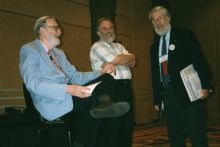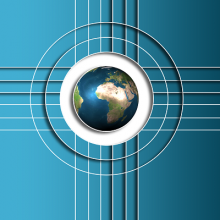Adventures in the Future
Tim Mack

Tim Mack (center) with Joe Coates and Arthur Shostak, at WF2002 conference.
AAI Foresight Managing Principal Tim Mack reflects on how he arrived at a career in futures studies, including his 10-year tenure as president of the World Future Society, and lessons he has learned.

